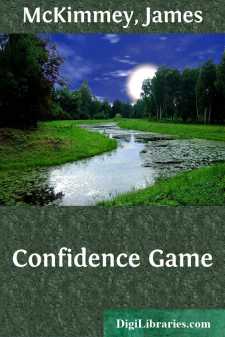Categories
- Antiques & Collectibles 13
- Architecture 36
- Art 48
- Bibles 22
- Biography & Autobiography 815
- Body, Mind & Spirit 144
- Business & Economics 28
- Children's Books 18
- Children's Fiction 14
- Computers 4
- Cooking 94
- Crafts & Hobbies 4
- Drama 346
- Education 58
- Family & Relationships 59
- Fiction 11835
- Games 19
- Gardening 17
- Health & Fitness 34
- History 1378
- House & Home 1
- Humor 147
- Juvenile Fiction 1873
- Juvenile Nonfiction 202
- Language Arts & Disciplines 89
- Law 16
- Literary Collections 686
- Literary Criticism 179
- Mathematics 13
- Medical 41
- Music 40
- Nature 180
- Non-Classifiable 1768
- Performing Arts 7
- Periodicals 1453
- Philosophy 65
- Photography 2
- Poetry 896
- Political Science 203
- Psychology 44
- Reference 154
- Religion 515
- Science 126
- Self-Help 85
- Social Science 83
- Sports & Recreation 34
- Study Aids 3
- Technology & Engineering 60
- Transportation 23
- Travel 463
- True Crime 29
James McKimmey
The author has not yet completed their profile.
Author's Books:
Sort by:
by:
James McKimmey
George H. Cutter wheeled his big convertible into his reserved space in the Company parking lot with a flourish. A bright California sun drove its early brightness down on him as he strode toward the square, four-story brick building which said Cutter Products, Inc. over its front door. A two-ton truck was grinding backward, toward the loading doors, the thick-shouldered driver craning his neck....
more...
by:
James McKimmey
Joseph Heidel looked slowly around the dinner table at the five men, hiding his examination by a thin screen of smoke from his cigar. He was a large man with thick blond-gray hair cut close to his head. In three more months he would be fifty-two, but his face and body had the vital look of a man fifteen years younger. He was the President of the Superior Council, and he had been in that post—the...
more...
by:
James McKimmey
It was a small world, a tiny spinning globe, placed in the universe to weather and age by itself until the end of things. But because its air was good and its earth was fertile, Daniel Loveral had placed a finger upon a map and said, "This is the planet. This is the Dream Planet." That was two years before, back on Earth. And now Loveral with his selected flock had shot through space, to light...
more...
by:
James McKimmey
June 19, 1978. Celebrity day. The city stretched. Empty streets glistened from the bath of a water truck. Dew-wet grass winked at the fresh peeping sun, like millions of shimmering diamonds. A bird chirped. Another. The city yawned. Rows of houses lay like square ivory beads on patches of green felt. A boy drove his bicycle down the middle of an elm-bordered avenue, whistling loudly, while tightly...
more...
by:
James McKimmey
The farmer refused to work. His wife, a short thin woman with worried eyes, watched him while he sat before the kitchen table. He was thin, too, like his wife, but tall and tough-skinned. His face, with its leather look was immobile. "Why?" asked his wife. "Good reasons," the farmer said. He poured yellow cream into a cup of coffee. He let the cup sit on the table. "Henry?" said...
more...
by:
James McKimmey
George Kenington was sixteen, and, as he told himself, someone who was sixteen knew more about love than someone who was, say, forty-two. Like his father, for instance. A whole lot more probably. When you were forty-two, you got narrow-minded and nervous and angry. You said this is this, and that is that, and there is nothing else. When someone thought and felt and talked that way, George thought...
more...







